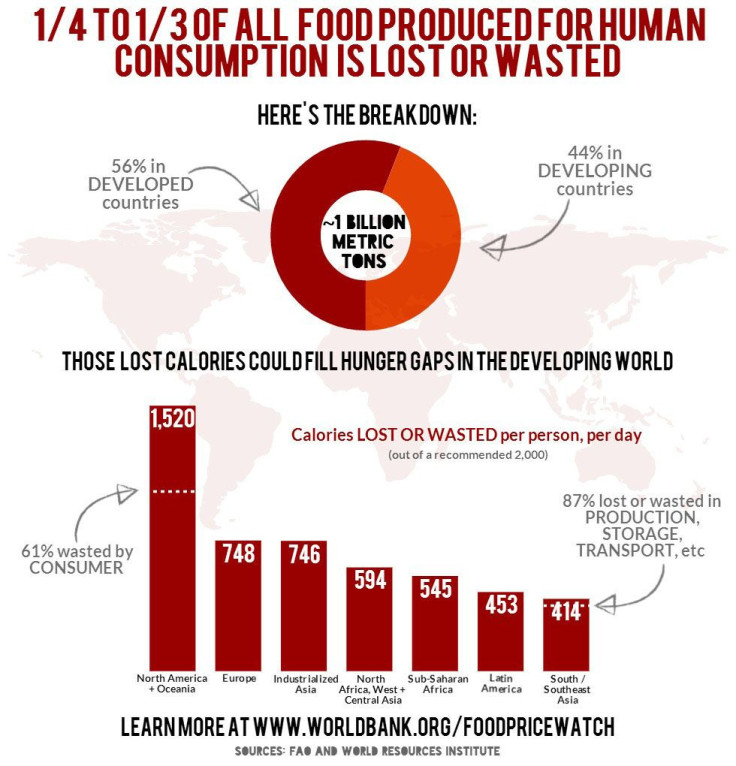World Bank Takes Food Waste Seriously, Estimating Third Of Production Is Wasted

Anywhere from a quarter to one third of the world's food production is wasted, according to recent World Bank estimates, which were bolstered by a live chat on food waste on Tuesday.
The developed world wastes more food than developing countries, though together the world wastes 11 billion metric tons annually. In South and Southeast Asia, where a quarter of global food is wasted, almost 90 percent is lost in production, storage and transport. But in North America and Oceania, almost 61 percent of food is wasted by consumers.
Latin America is the region that wastes the least food, equivalent to about 15 percent of its annual production.
Optimizing food production techniques, investing in infrastructure like roads and refrigeration, and encouraging responsible retailers and consumers are among solutions, wrote World Bank senior economist Jose Cuesta during the online Q&A.
"We know richer countries waste more on a per capita basis, but also that poor consumers waste food," he wrote. Cuesta fielded questions from residents of several countries, including the United States, Indonesia, and the Netherlands. The online chat came after the Feb. 27 release of the World Bank's quarterly Food Price Watch, which noted that global food prices fell 11 percent on a yearly basis, driven by bumper crop harvests.
"Changing mindsets will be already a huge contribution in places where that is related to about a third of all the food lost (as in developed countries). Food donations is another solution where we need to do better," added Cuesta.
Contributors asked about how manufacturers facilitated waste with deceptive expiration dates and whether academic evidence established a link between reducing food waste and improving food security.
Concrete short-term solutions seemed few, with Cuesta acknowledging that a key problem is awareness and political will among consumers.
"There will not be changes in regulation or in economic incentives if a society does not start demanding them. Technical solutions - for example, making easier to donate food -- will not work if there is not an appetite to do that," wrote Cuesta.
The United Nation's Food and Agriculture Organization (FAO) also held a regional conference on food wastage last week in Rome, highlighting food waste in North Africa. The World Bank Group committed $8.1 billion to agriculture in 2013, representing 12 percent of its total lending.
Record dry weather in Brazil has provided some price boosts to agricultural commodities markets, including Arabica coffee beans. Brazil is a major producer and exporter of soybeans, sugar and coffee, among other products.

© Copyright IBTimes 2025. All rights reserved.






















